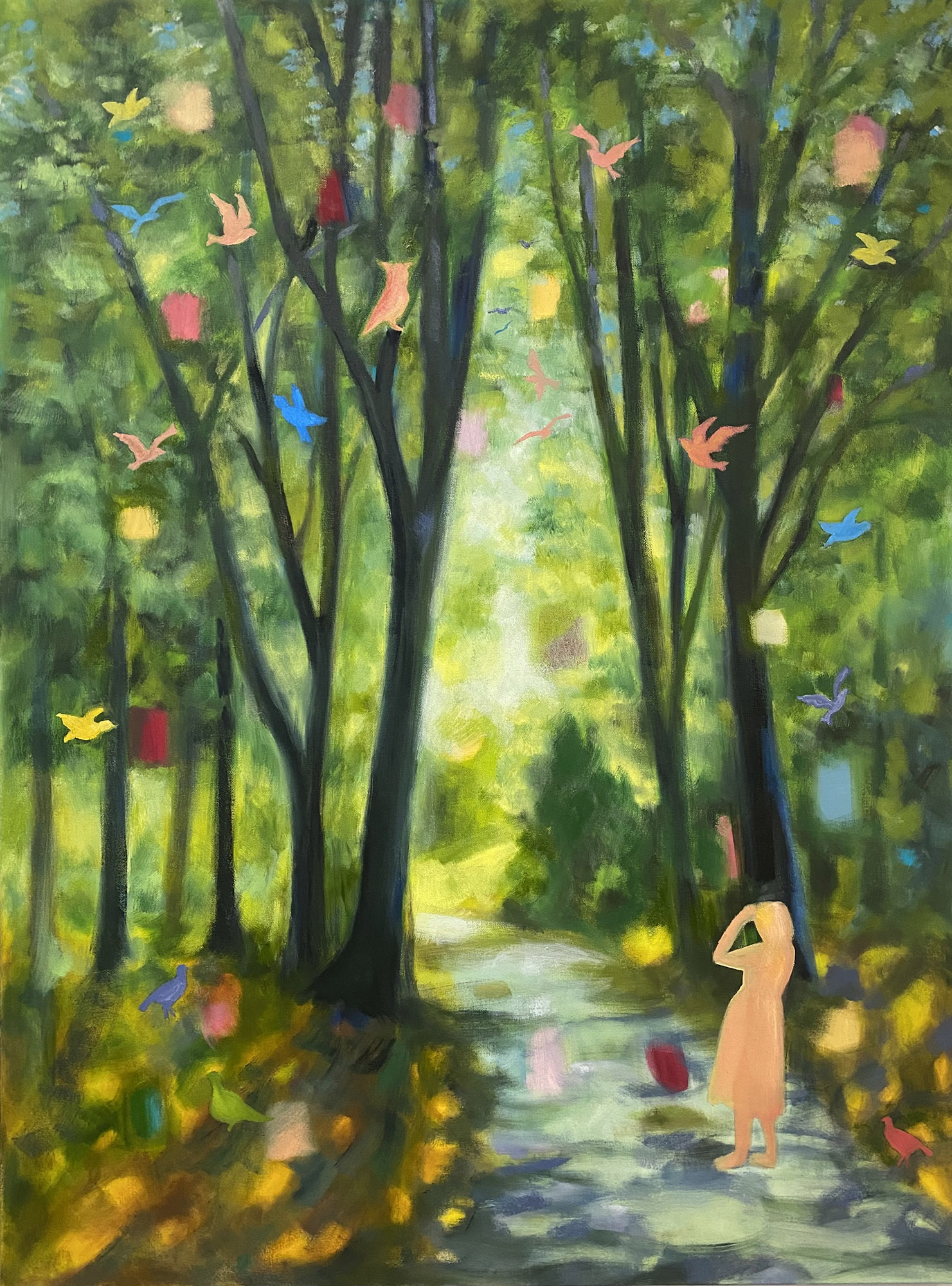He has been doing this for decades,
climbing the ladder to clean out
rotting leaves, twigs, whirligigs.
In retrospect, perhaps he should
have bought gutter guards long ago,
but they couldn’t afford them at first,
then there were always other expenses,
schools, vacations, cars, medical bills,
and who knew they would live here
this long? It still seems day-to-day.
Once, when the kids were young,
he insisted that they and their friends
weren’t responsible enough to clean
the gutters, and each one had demanded
the chance to climb and scoop muck.
A fine Tom Sawyer trick on his part.
In those years, he would find tennis balls,
frisbees, army men, and once sunglasses
from one of his daughter’s break-ups.
Now it’s just the autumn debris of trees.
For a while he suggested there should be
a National Gutter Day when we clean out
what’s collected over the year and is now
clogging us, a day we get out trash bags,
put on gloves, and clean the channels.
The day wouldn’t necessarily involve
climbing rungs, but could be walking
with an old friend, having a coffee, or
dropping off boxes at the Goodwill,
or it might mean putting up new gutters
in places they haven’t been, a relationship
with a parent, friend, lover or neighbor,
recognizing a need to separate and sluice
away what might damage the foundations.
Then he realized that day was New Year’s
with its resolutions, and he did chores
like this on holiday weekends anyway—
Easter, Memorial Day, Labor Day—
and who would want to swap out, say,
Fourth of July for National Gutter Day?
Plus he had vague memories of an uncle,
a Navy vet, who would talk about the need
to get drunk and “get his pipes cleaned out,”
and he could see how National Gutter Day
could become “End Up in the Gutter Day,”
a bacchanalia, like St. Patrick’s or Mardi Gras,
which is not what he meant, so he stopped
making that suggestion. Now he surveys
the neighboring yards and houses of friends
long gone, of children grown, and remembers
another joke, one about Jesus they loved to tell
in Catholic school with its punchline of Christ
saying to Peter, “I can see your house from here.”
He feels he understands the joke more each year,
the dark humor in the face of mortality, the pull
of the banal even as a life gutters towards its end.
It occurs to him there could be a good variation
of the joke, something along the lines of “Peter,
I can see you need to clean your gutters,” and
then he realizes this aligns him with Christ, and
he laughs at such arrogance and ridiculousness.
He still has enough self-awareness to know
it probably makes the neighbors nervous, seeing
an old man angled in the air, sporadically laughing
and appearing morose. He wonders how long
he can continue to do this, but they can’t afford
to pay a neighbor kid, even if they knew one.
He still expects to hear her come out and yell
in that angry voice that shows worry and love,
“Jesus, get down!”(or “Jesus get down!”) but
she stays inside now. In bed. Trying to cough
the muck in her lungs clear. When he’s finished,
he’ll make her tea and tell her how the people
in the McCaffrey place have painted the kitchen.
He thinks it’s just as well they never bought
the guards. Some maintenance is good to do
on his own, to remember old jokes, to plunge
his hands into the year’s decay, and to prepare,
as best as he can, for the storms that are to come.
